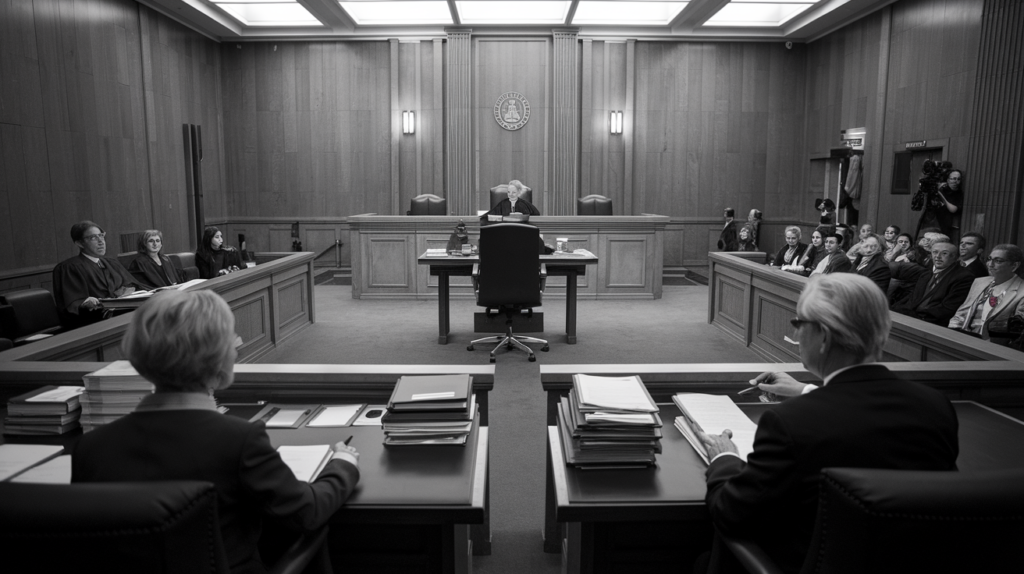What is an Appeal?
An Appeal is, “The complaint to a superior court of an injustice done or error committed by an inferior one, whose judgment or decision the court above is called upon to correct or reverse.” (Black’s Law Dictionary 124. 4th Ed. Rev. 1968)

The appeal process involves a losing party requesting a higher court to reconsider a ruling or decision made at trial. Most appeals take place in an appellate court. The party making an appeal is known as the appellant, while the original winning party is known as the appellee or respondent. Common errors that can be considered proper grounds for appeal may include legal application errors by a sitting judge, procedural errors conducted by attorneys, or evidence issues such as improper evidence being allowed in court or important evidence being wrongfully excluded from court. After arguments from both the appellant and appellee as to why a court’s decision is either proper or not, the appellant court will decide to affirm, reverse, or remand that decision. When a decision is remanded, that particular case is sent back to a lower court for a new trial or other proceedings.
An appeal can only be made after a final judgment is made. A case can not be appealed when it is ongoing or if facts of the case are in dispute. Rulings in cases such as Bowersock v. Missouri Valley Drainage Dist. of Holt County clarify that appeals are continuations of existing lawsuits, not lawsuits themselves. While appeals may lengthen the legal process, they are seen as vital parts of the justice system. They exist to insure that errors or issues don’t result in the wrong rulings.
More information about Appeal
When to Hire a Workers’ Comp Lawyer
How Do You Know When to Hire an Injury Lawyer?
 Getting hurt on the job can cause big problems. Workplace injuries can be serious, and even result in death. According to the Bureau of Labor Statistics, 2.7 million workplace injuries and illnesses occurred in 2020. If you were injured on the job, you may need to miss work to deal with expensive medical treatment, lengthy and costly rehabilitation.
Getting hurt on the job can cause big problems. Workplace injuries can be serious, and even result in death. According to the Bureau of Labor Statistics, 2.7 million workplace injuries and illnesses occurred in 2020. If you were injured on the job, you may need to miss work to deal with expensive medical treatment, lengthy and costly rehabilitation.
Thankfully, there are workers’ compensation benefits to cover injured workers’ medical expenses and lost wages. These benefits can also compensate families of workers who are killed on the job. By filing a workers’ comp claim, you can recover the compensation you deserve to cover the costs of your injuries.
But how do you know when you need to hire a workers’ compensation lawyer to handle your claim? Munley Law Personal Injury Attorneys workers’ comp lawyers can help you understand your rights and if you need a workers’ compensation lawyer to handle your claim. […]
Read MoreMore information about Appeal
Can I Get a Settlement from Workers’ Compensation If I Go Back to Work?
Returning to Work During Workers’ Comp Claim
 After an injury on the job, you will have many questions about how to proceed. One may be: “Can I get a settlement from workers’ compensation if I go back to work?” The answer to that is yes. If your doctor has cleared you to work, and your injury won’t get in the way of performing your normal duties, then you are expected to return. This will not impact your workers’ compensation claim.
After an injury on the job, you will have many questions about how to proceed. One may be: “Can I get a settlement from workers’ compensation if I go back to work?” The answer to that is yes. If your doctor has cleared you to work, and your injury won’t get in the way of performing your normal duties, then you are expected to return. This will not impact your workers’ compensation claim.
The workers’ compensation insurance program is a sure way to protect both employers and employees in the state of Pennsylvania. The Workman’s (Workers’) Compensation Act of 1915 ensures that employees’ medical needs and lost wages are covered in the event of a workplace accident. At the same time, it protects employers against crippling lawsuits from injured workers.
You should always remember, […]
Read MoreMore information about Appeal
Workers’ Compensation Back Injury Claim
If you’ve suffered a back injury at work, hire an experienced workers’ comp attorney
A work-related back injury can have long-lasting affects, ranging from a few missed shifts to short-term or permanent disability. Pushing yourself to keep working despite a back injury can lead to a prolonged recovery process or permanent damage.
At Munley Law Personal Injury Attorneys, our Pennsylvania workers’ compensation lawyers can help you navigate the process of filing or appealing your claim so that you receive the compensation you need to recover from your back injury. Where full recovery isn’t possible, we will fight to recover the compensation you deserve to account for your new reality.
Common Workers’ Compensation Back Injury Claims
Filing a workers’ compensation claim for a back injury isn’t limited by your field or profession—anyone can sustain a back injury at work, […]
Read MoreMore information about Appeal
Workers’ Compensation for Neck and Back Injuries
Workers’ Compensation for Neck and Back Injuries in Pennsylvania
 Injuries to your neck and spine can be serious, and if they happened during an accident at work, the workers’ comp lawyers at Munley Law Personal Injury Attorneys can help you get what you deserve.
Injuries to your neck and spine can be serious, and if they happened during an accident at work, the workers’ comp lawyers at Munley Law Personal Injury Attorneys can help you get what you deserve.
According to the Pennsylvania Department of Labor and Industry, neck and back injuries made up 14% of workplace injuries in the state in 2019. That’s 24,057 incidents of neck or back injuries while on the job. Even more than the numbers, injuries to the neck and back can involve the spinal cord, making the consequences severe. Serious injuries can happen in a variety of workforces. However, statistics show the construction industry is particularly hard hit when it comes to neck and back injuries.
Workers’ comp cases can be difficult to navigate, particularly for serious occurrences that cause neck and back injuries. […]
Read MoreMore information about Appeal
Workers’ Compensation and Head Injuries
Experienced Workers’ Compensation Lawyer for Head Injuries
If you have experienced a head injury while on the job, you may be entitled to workers’ compensation. From medical bills to lost wages, recover what is owed to you with an experienced workers’ compensation lawyer by your side.
According to the Pennsylvania Department of Labor and Industry, head injuries made up 12% of workplace injuries in the state in 2019. That’s 20,706 incidences of head injuries while on the job.
While serious injuries can happen in a variety of workforces, the construction industry is particularly hard hit when it comes to head injuries. According to OSHA, the construction industry is one of the most dangerous occupations in the U.S. Falls, crushing injuries, and equipment-related accidents can seriously injure Pennsylvania workers.
These cases can be difficult to navigate, particularly for serious occurrences that cause head injuries. […]
Read More









